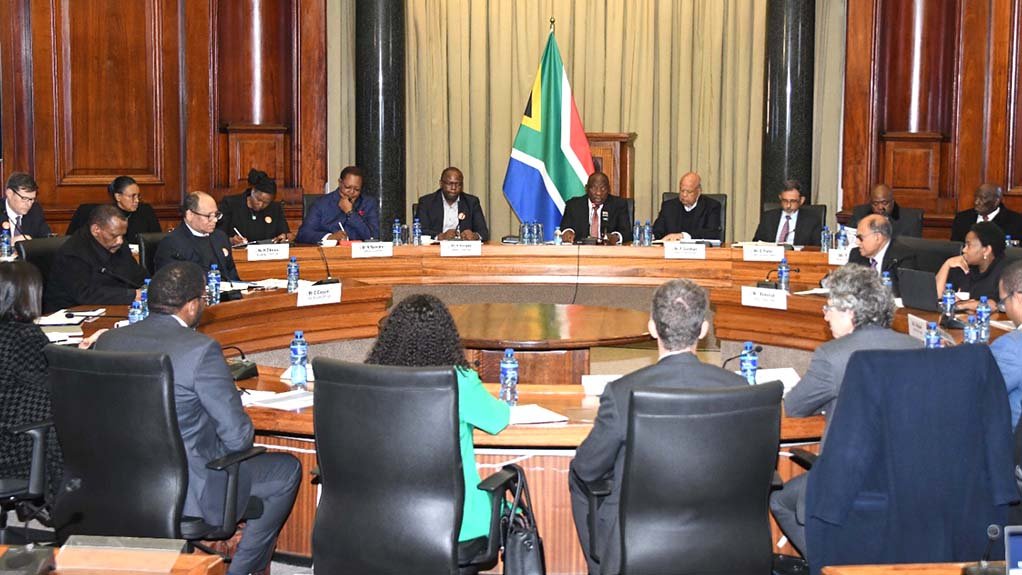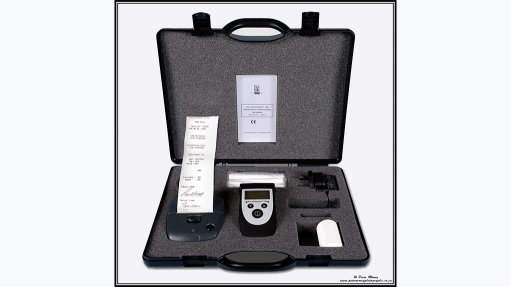Presidency, business call for expedited passage during current Parliamentary term of Bill overhauling electricity market


The August 1 meeting of South African Presidency and various government departments, with Business Unity South Africa, Business for South Africa, and Business Leadership South Africa
The Presidency and organised business have called for the passage of the Electricity Regulation Amendment (ERA) Bill to be expedited within the sixth Parliament, following a meeting on August 1 to discuss the progress being made under a previously announced partnership to jointly tackle the country’s energy, transport, and crime and corruption crises.
The Bill was eventually tabled in the National Assembly on July 20 following its approval by Cabinet on March 29 and no timetable has yet been set for its passage, with some expressing doubt that there is sufficient time for lawmakers to consider the Bill before the 2024 elections.
However, in a joint statement, the Presidency and organised business identified the passage of the Bill as one of several “critical next steps” required to restore confidence.
In a joint statement, it was argued that the ERA Bill was crucial to ending loadshedding, expediting energy development, expanding transmission infrastructure, establishing a competitive electricity market, and attracting investment in the energy sector.
Speaking during a business report back session following the meeting with government, Energy Council of South Africa CEO James Mackay said that the appeal was for Parliament to treat the ERA as “emergency” legislation, as the Bill was “fundamental to unlocking a lot of the reform confidence and direction that will enable a lot bigger investment”.
However, Democratic Alliance shadow energy minister Kevin Mileham raised doubts about whether there was sufficient time for the Bill to be processed by both the National Assembly (NA) and the National Council of Provinces (NCOP) before the 2024 elections, which could take place as early as May.
While expressing support for the passage of the Bill, which he described as urgent and overdue, Mileham told Engineering News that the NA would need to complete both its public participation and its own deliberations before Parliament breaks in either late November or early December. This, to give the NCOP sufficient time, from the reopening of Parliament in February till the general elections, to undertake its own separate processes.
He noted that the public participation process alone for the Upstream Petroleum Resources Development, which involved hearings in all nine provinces, took close to eight months and there was still intensive work required during August before the NA could provide its approval, which was required before the NCOP could undertake its own process.
He also noted that the ERA Bill was not yet on the programme of the Portfolio Committee of Mineral Resources and Energy. “Therefore, I don't see the ERA Bill being passed by the current Parliament,” Mileham told Engineering News.
The other electricity-related priorities outlined during the meeting between government and business included:
- Completing the establishment of the National Transmission Company of South Africa (NTCSA), a move that is viewed as necessary to create a level playing field for electricity generators and to enable increased investment in transmission infrastructure; and
- Fully operationalising the ‘One Stop Shop’ to fast-track renewable energy projects. This includes ensuring that adequate capacity and systems are in place to facilitate authorisations for energy projects and reduce lead times to construction.
Although the Energy Regulator, the highest decision-making body of the National Energy Regulator of South Africa, approved a 25-year transmission facilities licence for the NTCSA on July 27, it refrained from approving the two other licences required for the operationalisation of the new independent grid company.
Eskom has formally welcomed the decision to approve the licence for the operation of the transmission system, but noted that the NTCSA had also applied for a trading licence and an import/export licence.
“The granting of the requisite operating licences to NTCSA is one of the key dependencies required to enable the operationalisation of the NTCSA,” Eskom said in a statement.
The other two dependencies include securing lender consent, which is itself seemingly contingent on the approval of the three licences, as well as the appointment of an independent board for NTCSA, which will initially operate as a wholly owned subsidiary of Eskom Holdings.
Ahead of the meeting with business, the Presidency indicated that it was troubled by the fact that only one licence had been approved for NTCSA.
“We are very concerned about that, because the NTCSA needs all three licences in order to operate and to fulfil its intended functions,” the Presidency’s Saul Musker said during a briefing on the implementation of the Energy Action Plan.
“[Given] the enormous importance of fully operationalising the NTCSA, our hope is that we would be able to resolve this sooner rather than later and have the remaining two licences in place alongside the other two conditions [lender consent and an independent board], so that there shouldn't be too much of a delay in establishing the entity,” Musker added.
Mackay stressed the importance of the Eskom unbundling process, describing it as the natural next step in the progression of the electricity supply industry.
“The fact that the transmission licence has been issued is very positive,” he said, expressing confidence that the other licences would follow.
While business and government did not specifically prioritise finding a resolution to the dispute that had arisen around Eskom’s interim grid queuing rules, Mackay revealed that behind-the-scenes moves were under way to seek an acceptable resolution, without interfering with a legal process that was also under way.
G7 Renewable Energies failed to interdict Eskom from implementing the rules, but the second part of its application, dealing with the rationality and lawfulness of the rules, is due to be heard on September 11.
“From the get go when the court case was launched, there has been industry intervention working behind the scenes, and I think there's a lot of very positive technical work and focus that is being put into this,” Mackay revealed.
He reported that a dedicated team from the National Energy Crisis Committee was working with Eskom to “reframe” the rules.
Article Enquiry
Email Article
Save Article
Feedback
To advertise email advertising@creamermedia.co.za or click here
Announcements
What's On
Subscribe to improve your user experience...
Option 1 (equivalent of R125 a month):
Receive a weekly copy of Creamer Media's Engineering News & Mining Weekly magazine
(print copy for those in South Africa and e-magazine for those outside of South Africa)
Receive daily email newsletters
Access to full search results
Access archive of magazine back copies
Access to Projects in Progress
Access to ONE Research Report of your choice in PDF format
Option 2 (equivalent of R375 a month):
All benefits from Option 1
PLUS
Access to Creamer Media's Research Channel Africa for ALL Research Reports, in PDF format, on various industrial and mining sectors
including Electricity; Water; Energy Transition; Hydrogen; Roads, Rail and Ports; Coal; Gold; Platinum; Battery Metals; etc.
Already a subscriber?
Forgotten your password?
Receive weekly copy of Creamer Media's Engineering News & Mining Weekly magazine (print copy for those in South Africa and e-magazine for those outside of South Africa)
➕
Recieve daily email newsletters
➕
Access to full search results
➕
Access archive of magazine back copies
➕
Access to Projects in Progress
➕
Access to ONE Research Report of your choice in PDF format
RESEARCH CHANNEL AFRICA
R4500 (equivalent of R375 a month)
SUBSCRIBEAll benefits from Option 1
➕
Access to Creamer Media's Research Channel Africa for ALL Research Reports on various industrial and mining sectors, in PDF format, including on:
Electricity
➕
Water
➕
Energy Transition
➕
Hydrogen
➕
Roads, Rail and Ports
➕
Coal
➕
Gold
➕
Platinum
➕
Battery Metals
➕
etc.
Receive all benefits from Option 1 or Option 2 delivered to numerous people at your company
➕
Multiple User names and Passwords for simultaneous log-ins
➕
Intranet integration access to all in your organisation


















